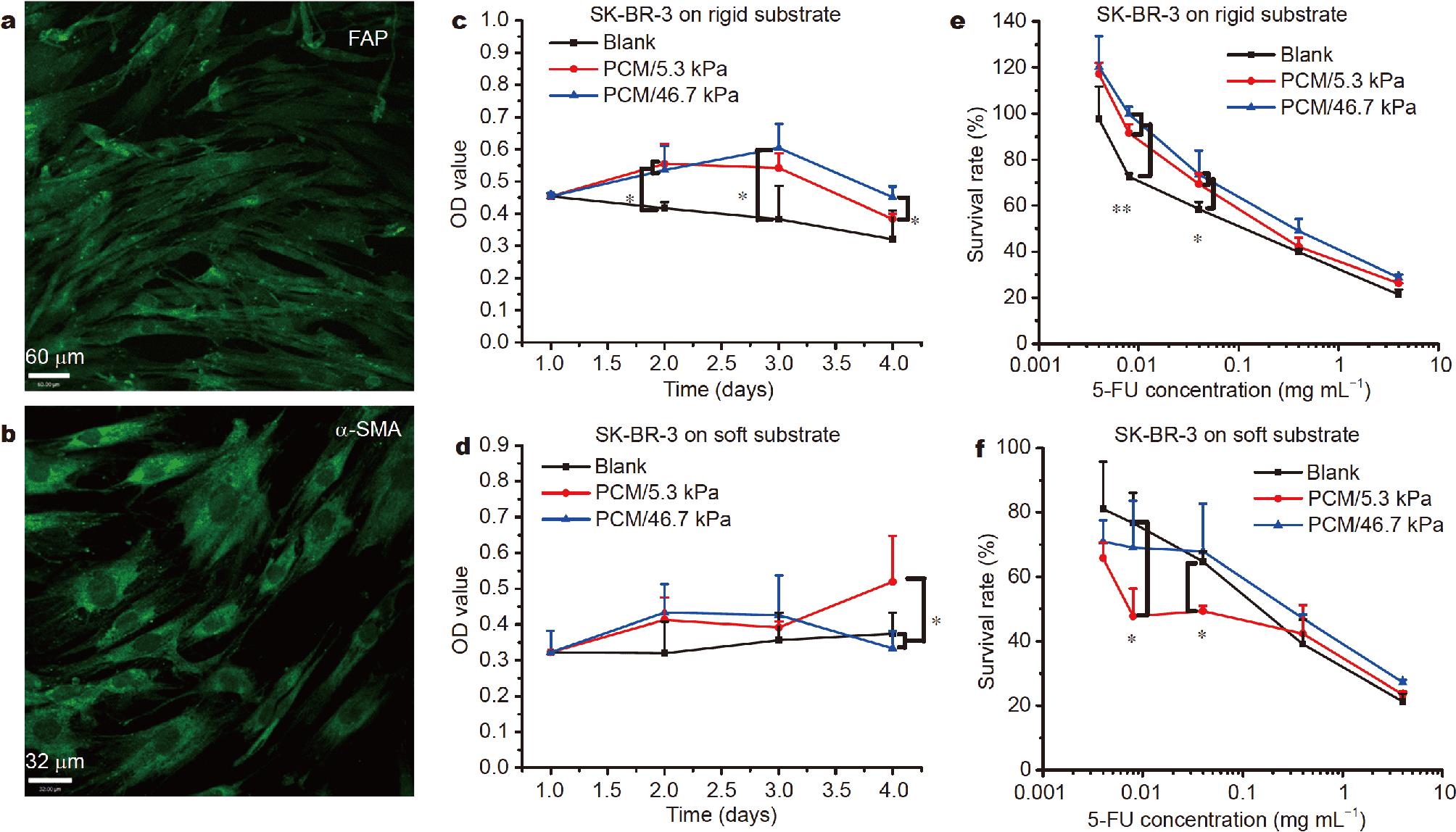Stiffness heterogeneity-induced double-edged sword behaviors of carcinoma-associated fibroblasts in antitumor therapy
Author:Feng, JT (Feng, Jiantao); Sharma, S (Sharma, Shivani); Rao, E (Rao, Elizabeth); Li, X (Li, Xiang) ; Zhang, Q (Zhang, Qiang); Liao, FL (Liao, Fulong); He, J (He, Jie); Han, D (Han, Dong); Rao, JY (Rao, Jianyu)
Carcinoma-associated fibroblasts (CAFs) function as a double-edged sword in tumor progression. However, factors affecting the transition between tumor promotion and inhibition remain to be investigated. Here, we found that the transition was determined by stiffness heterogeneity of the tumor stroma in which tumor cells and CAFs were grown. When tumor cells were grown on a rigid plastic substrate, supernatants from CAFs inhibited the cytotoxic effects of 5-fluorouracil. In contrast, when tumor cells were grown on a soft substrate (5.3 kPa), supernatants from CAFs grown on a soft substrate increased the cytotoxicity of 5-fluorouracil. The diverse effects of CAFs were mediated by mechanotransduction factors, including stroma stiffness-induced cytokine expression in CAFs and signal transduction associated with stress fiber formation of CAFs. Moreover, we found that the cytokine expression in CAFs was regulated by nuclear Yes-associated protein, which changed according to cell stiffness, as characterized by atomic force microscopy. Overall, these findings suggested that modulating the mechanotransduction of the stroma together with CAFs might be important for increasing the efficacy of chemotherapy.
